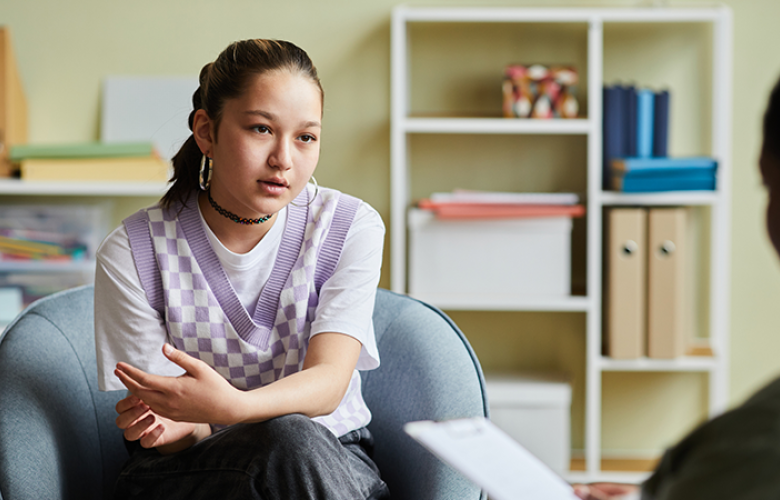
On May 11, 2023, the U.S. Department of Health and Human Services declared that the public health emergency for COVID-19 had expired.1 However, it is no surprise that the effects of the COVID-19 pandemic are still with us, especially among teens. We see it not only in their decreased academic scores2 but also in the mental health issues they are facing.
Long before the pandemic, we knew that the stress among teens was rising.3 And while some stress can have positive effects, such as motivating teens to finish their schoolwork on time or take the steps they need to successfully get into a good college or career, chronic stress can harm their overall physical and mental well-being.
Now in a post-pandemic world, one of the most critical aspects to address is the mental health of teens. According to the U.S. Surgeon General, the pandemic “exacerbated the unprecedented stresses young people already faced.”4While a 2022 Stanford University study revealed that not only are teens experiencing more adverse mental health symptoms, such as anxiety and depression, but their research also suggests that they have experienced adverse physical brain development.5
We must acknowledge the pandemic’s long-term effects on students’ mental health, including anxiety, depression, and brain development, as well as on their lives and future careers.
Therefore, student well-being should be at the forefront of education. But as educators, what kind of support can we give or advocate for? Following are some suggestions:
- Interdisciplinary support – Collaborative efforts among educators, psychologists, and health care professionals are essential. These partnerships can create holistic support systems within schools to address students’ mental health needs.
- Mental health literacy – Incorporating mental health education into the curriculum to educate students is crucial.
- Educator training – Educators should be trained to identify and address mental health issues in the classroom as well as in communicating with parents on their students’ mental health.
- Parent-caregiver partnership – We need to emphasize the importance of involving parents and caregivers as soon as a mental health concern is noted or identified.
- Community engagement – Establishing community-school partnerships that offer mental health resources can aid schools in supporting students’ mental health. Such partnerships may include mental health professionals, youth serving organizations (e.g., Boys and Girls Clubs), and health care settings in the community.
In our post-pandemic world, student mental health is a paramount concern. Therefore, it is important to take concrete steps to support students’ mental health and resilience in these challenging times. By fostering interdisciplinary collaboration, integrating mental health education, partnering with parents and caregivers, and engaging communities, we can create an educational environment that prioritizes the well-being of students.
| Camille Ferguson is an experienced educator and a senior research associate at EDC’s Center for Children and Technology. Her work focuses on the social context of learning and education policies aimed at educational equity, particularly for traditionally underrepresented youth living in urban settings. |
1U.S. Department of Health and Human Services. (n.d.). COVID-19 public health emergency. https://www.hhs.gov/coronavirus/covid-19-public-health-emergency/index.html
2Miller, L. C., & Schueler, B. E. (2022). Post-pandemic onset public school student test-based performance in Virginia. COVID-19 Impacts Research Brief Series No. 2. Grantee Submission.
3U.S. Department of Health and Human Services. (2021). Protecting youth mental health: U.S. surgeon general’s health advisory (p. 3). https://www.hhs.gov/sites/default/files/surgeon-general-youth-mental-health-advisory.pdf
4U.S. Department of Health and Human Services, Protecting youth mental health, p. 4.
5Gotlib, I. H., Miller, J. G., Borchers, L. R., Coury, S. M., Costello, L. A., Garcia, J. M., & Ho, T. C. (2022, December 1). Effects of the COVID-19 pandemic on mental health and brain maturation in adolescents: Implications for analyzing longitudinal data. Biological Psychiatry Global Open Science, 3(4), 912–918. DOI: 10.1016/j.bpsgos.2022.11.002

Add new comment